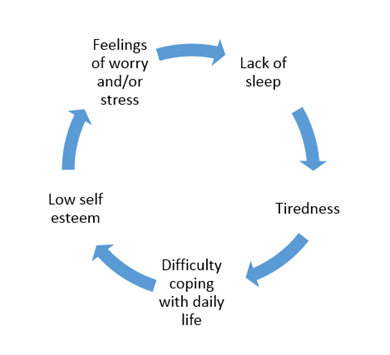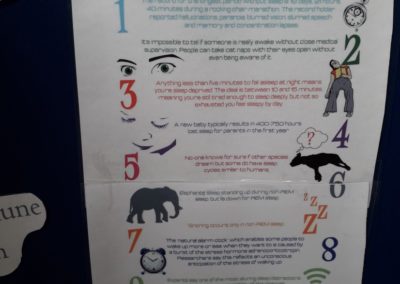Whether you love to sleep (like my dog!) or prefer to stay up all night, sleep is important to our emotional and physical health. So, given it was World Sleep Day on Friday 13th March we thought we would look at why sleep is important. It is organized by the World Sleep Day Committee of World Sleep Society and aims to look at why people have problems sleeping and how to get better sleep.
We are all different with the amount of sleep we need, Napoleon, Florence Nightingale and Margaret Thatcher got by on four hours a night but one thing we all have in common is we all need to sleep.
Fun Facts About Sleep
- People can take cat naps with their eyes open without even knowing it.
- Humans spend about a third of their lives asleep.
- One in five adults fails to get enough sleep.
- Most dreams involve normal situations with familiar people; bizarre, fantastic or intense dreams are rare.
- A change in the body clock keeps most teens from feeling sleepy until 11 p.m. or later.
- Mild snoring is nearly universal – almost everyone is likely to snore at one time or another.
- Drinking caffeine during the day can affect how you sleep at night.
- Sleepwalking tends to be a fairly normal part of a child’s early sleep patterns.
- No one knows if other species dream but some do have sleep cycles similar to humans.
- Elephants can sleep while standing or while lying on the ground.
Why do we sleep?
This question has baffled scientists for centuries and the answer is, no one is really sure. Some believe that sleep gives the body a chance to recuperate from the day’s activities but in reality, the amount of energy saved by sleeping for even eight hours is minuscule – about 50 kCal, the same amount of energy in a piece of toast.
We do know that we need to sleep because it is essential to maintaining normal levels of skills such as speech, memory, innovative and flexible thinking. In other words, sleep plays a big role in brain development.
Check out the sleep page for more information about sleep
Sleep and Mental Health
There’s a close relationship between sleep and mental health. Living with a mental health problem can affect how well you sleep, and poor sleep can have a negative impact on your mental health.
If you are not sleeping well it can lead to;
- having negative thoughts, feel depressed or anxious – if you have little sleep you may feel less able to rationalise worries or irrational thoughts
- feel lonely or isolated – if you feel tired you may not want to be sociable or see friends
Not sleeping well can be a cycle like the one below;

Human v Animal
| Species | Average total sleep time per day |
| Python | 18 hrs |
| Tiger | 15.8 hrs |
| Cat | 12.1 hrs |
| Chimpanzee | 9.7 hrs |
| Sheep | 3.8 hrs |
| African elephant | 3.3 hrs |
| Giraffe | 1.9 hr |
| Adult Human | 6-7 hr |
| Teenager | 9-10 hr |
Talking of animals why don’t you check out our cat on the SLEEP page for some top tips for getting a great nights sleep




Recent Comments